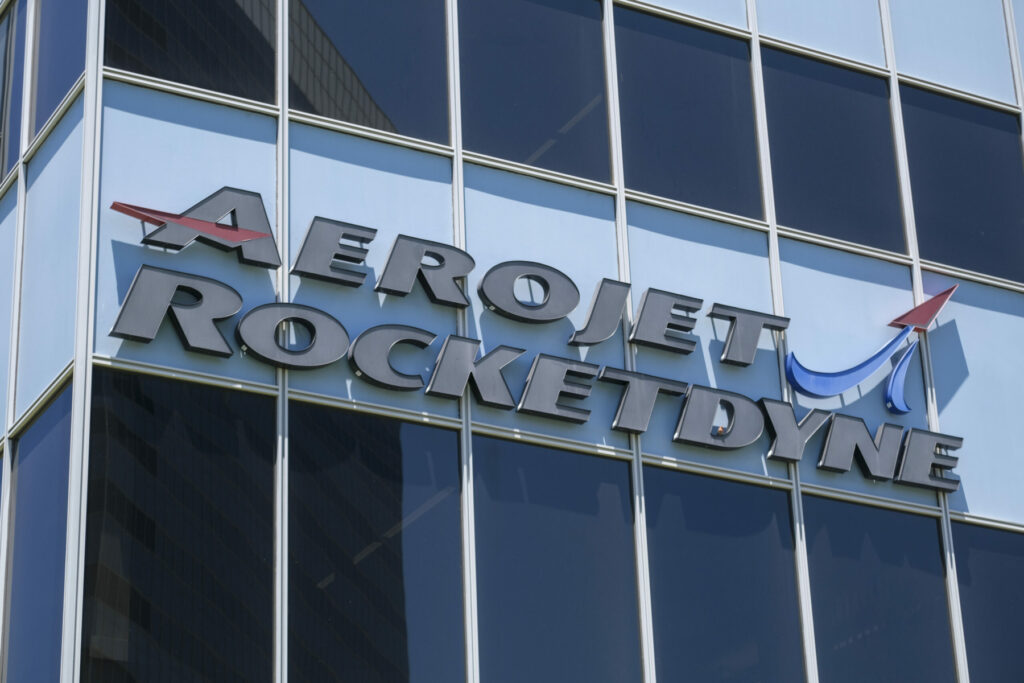Aerojet Rocketdyne Holdings Chief Executive Eileen Drake won a fierce, monthslong proxy contest with Chairman Warren Lichtenstein over control of the company’s board.
Drake’s independent slate of directors received more than 75% of votes, with Drake herself receiving the most votes of any individual director.
In addition to Drake, the new board consists of incumbent independent directors Gen. Kevin Chilton (Ret.), Thomas Corcoran and Gen. Lance Lord (Ret.); and new independent directors Gail Baker, Marion Blakey, Maj. Gen. Charles Bolden (Ret.) and Deborah James.
“We believe Aerojet Rocketdyne has substantial momentum and upside, and we look forward to putting this proxy fight behind us so we can continue to focus on creating value for our shareholders,” Drake said in the statement.
The special meeting and board vote took place on June 30.
The opposing Lichtenstein is also the founder and executive chairman of Steel Partners Holdings, a private investment firm turned publicly traded holding company. He owns about 5.5% of Aerojet stock.
Lichtenstein referred to Drake as a “rogue chief executive officer” in a statement prior to the special meeting and board vote, which took the opposing sides more than two months to set up.
“Shareholders should not be fooled by Ms. Drake’s attempts to downplay the last 18 months of evident cash flow issues, customer complaints, employee attrition and program performance lapses,” Lichtenstein said in a statement. “Her unwillingness to pre-release second quarter results signals that the Company is, in fact, reeling from neglect. These problems need to be immediately addressed by a credible Chief Executive Officer and an engaged Board, or else hundreds of millions – if not billions – of dollars in value will be destroyed.”
Lichtenstein added that he and his slate of directors had diagnosed the company’s vulnerabilities and created a plan that targeted at least $65 per share within three years. The company’s stock sat at about $40 per share as of July 6 and had reached a high of $55.96 prior to the COVID-19 pandemic.
Drake’s victory over Lichtenstein comes after a long stretch of discourse and lawsuits between the two that began around the same time Aerojet was nearly acquired by Lockheed Martin Technologies, a $4.4 billion deal that the Federal Trade Commission moved to block in late January.
The commission cited concerns that Lockheed would remove the last independent missile propulsion provider in the United States and further consolidate markets that were crucial to national security and defense efforts. Lockheed terminated the deal not long after the FTC decision.
Lichtenstein’s Steel Partners said in a statement that it would nominate a slate that included four incumbents following the FTC’s lawsuit meant to block the multibillion-dollar deal.
“We believe our nomination was a justifiable response to the company having a gridlocked board and certain officers and directors recently taking actions without board consultation, including spending shareholders’ capital on high-priced advisors and issuing unauthorized material announcements in the name of the company,” Lichtenstein said in a statement.
Aerojet shared minor details of a pre-existing investigation into Lichtenstein for alleged misconduct after he officially announced his slate of directors. Aerojet said in a February disclosure that Lichtenstein’s initiation of the proxy fight was driven by personal concerns and was done to “secure his board position and gain leverage in the context of the company’s internal investigation.”
Lichtenstein filed a lawsuit against Drake and her slate in the Delaware Court of Chancery, which concluded shortly before the board vote took place.
The court ordered that Aerojet publish corrective disclosures, which resulted in the company having to retract the February disclosure that stated Lichtenstein was attempting to gain leverage over the investigation made into his alleged misconduct.
The court found that Drake unlawfully used company resources against half of the board, including bringing litigation against them with the help of corporate funds. Among other things, it also found that Drake violated the court’s previously issued temporary restraining order and then falsely testified to the contrary.

“I question how any shareholder can see Ms. Drake as remotely credible now that she has been found to have violated a Court order, misused corporate resources and made misleading disclosures that require correction,” Lichtenstein said in a statement.
Despite the court’s findings, Drake’s slate received support from proxy advisory firms Institutional Shareholder Services (ISS) and Glass Lewis not long after the court issued its findings.
“While a board free from the direct influence of Lichtenstein is preferable, either slate would be better than the status quo,” ISS wrote, according to a story published by Reuters. ISS added that there may be a role for Lichtenstein at Aerojet, but that the role is “just not as a board member at this point in time.”
Aerojet officially elected its new board of directors on July 6.
“We would like to thank our shareholders for their perspectives and feedback and we welcome the opportunity for continued shareholder engagement as we implement a value creation strategy that will strengthen our company, increase value for shareholders and provide affordable, highly reliable and innovative products for America’s national security and space programs,” Drake said in a statement.
Aerojet’s price per share has managed to stay aloft throughout the lengthy proxy battle and has increased by about $2 since the contest began. Truist Securities recently gave a buy rating to Aerojet Rocketdyne, adding that its stock is among the defense stocks that are being oversold.
